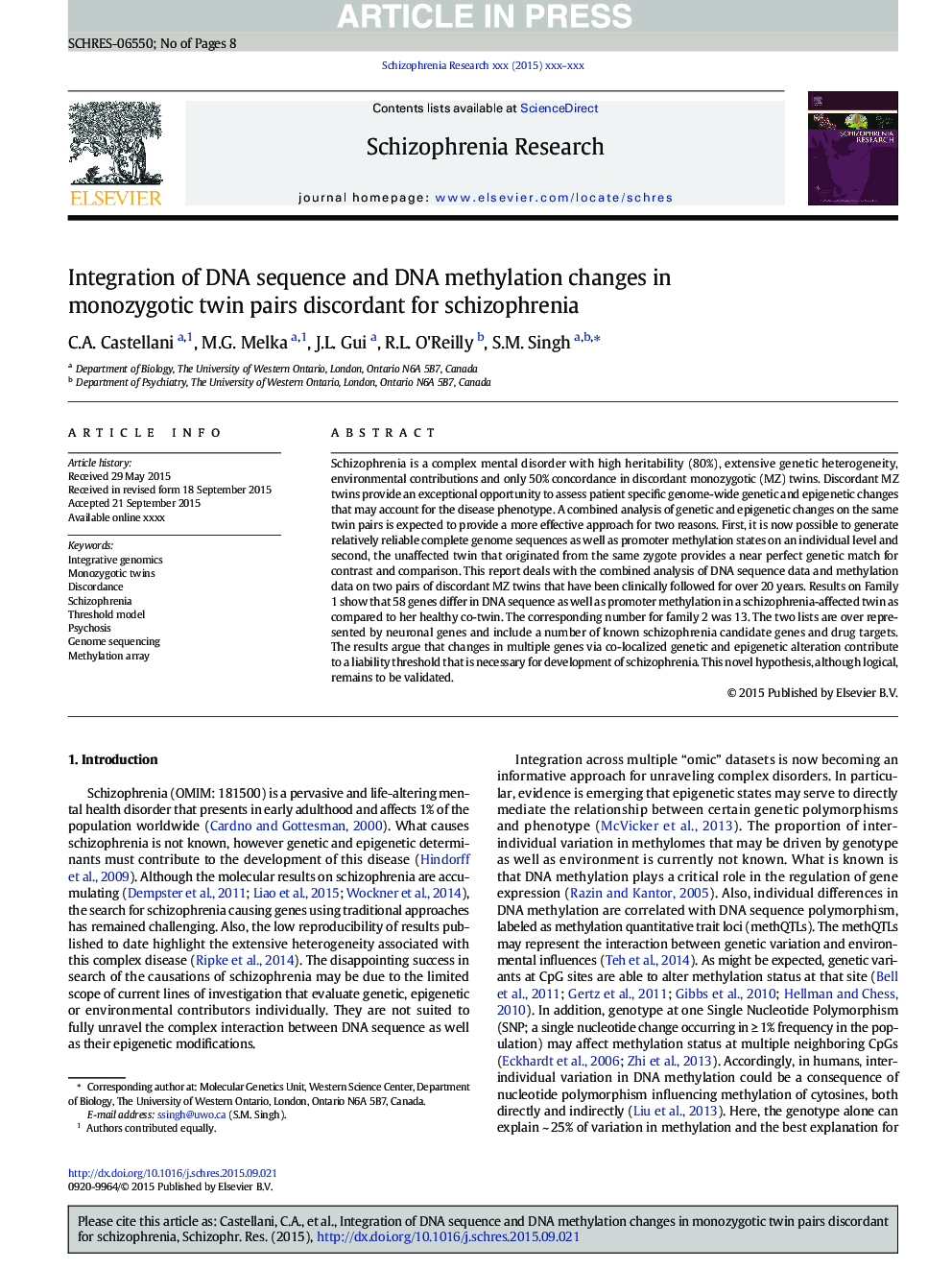| Article ID | Journal | Published Year | Pages | File Type |
|---|---|---|---|---|
| 6823701 | Schizophrenia Research | 2015 | 8 Pages |
Abstract
Schizophrenia is a complex mental disorder with high heritability (80%), extensive genetic heterogeneity, environmental contributions and only 50% concordance in discordant monozygotic (MZ) twins. Discordant MZ twins provide an exceptional opportunity to assess patient specific genome-wide genetic and epigenetic changes that may account for the disease phenotype. A combined analysis of genetic and epigenetic changes on the same twin pairs is expected to provide a more effective approach for two reasons. First, it is now possible to generate relatively reliable complete genome sequences as well as promoter methylation states on an individual level and second, the unaffected twin that originated from the same zygote provides a near perfect genetic match for contrast and comparison. This report deals with the combined analysis of DNA sequence data and methylation data on two pairs of discordant MZ twins that have been clinically followed for over 20Â years. Results on Family 1 show that 58 genes differ in DNA sequence as well as promoter methylation in a schizophrenia-affected twin as compared to her healthy co-twin. The corresponding number for family 2 was 13. The two lists are over represented by neuronal genes and include a number of known schizophrenia candidate genes and drug targets. The results argue that changes in multiple genes via co-localized genetic and epigenetic alteration contribute to a liability threshold that is necessary for development of schizophrenia. This novel hypothesis, although logical, remains to be validated.
Keywords
Related Topics
Life Sciences
Neuroscience
Behavioral Neuroscience
Authors
C.A. Castellani, M.G. Melka, J.L. Gui, R.L. O'Reilly, S.M. Singh,
